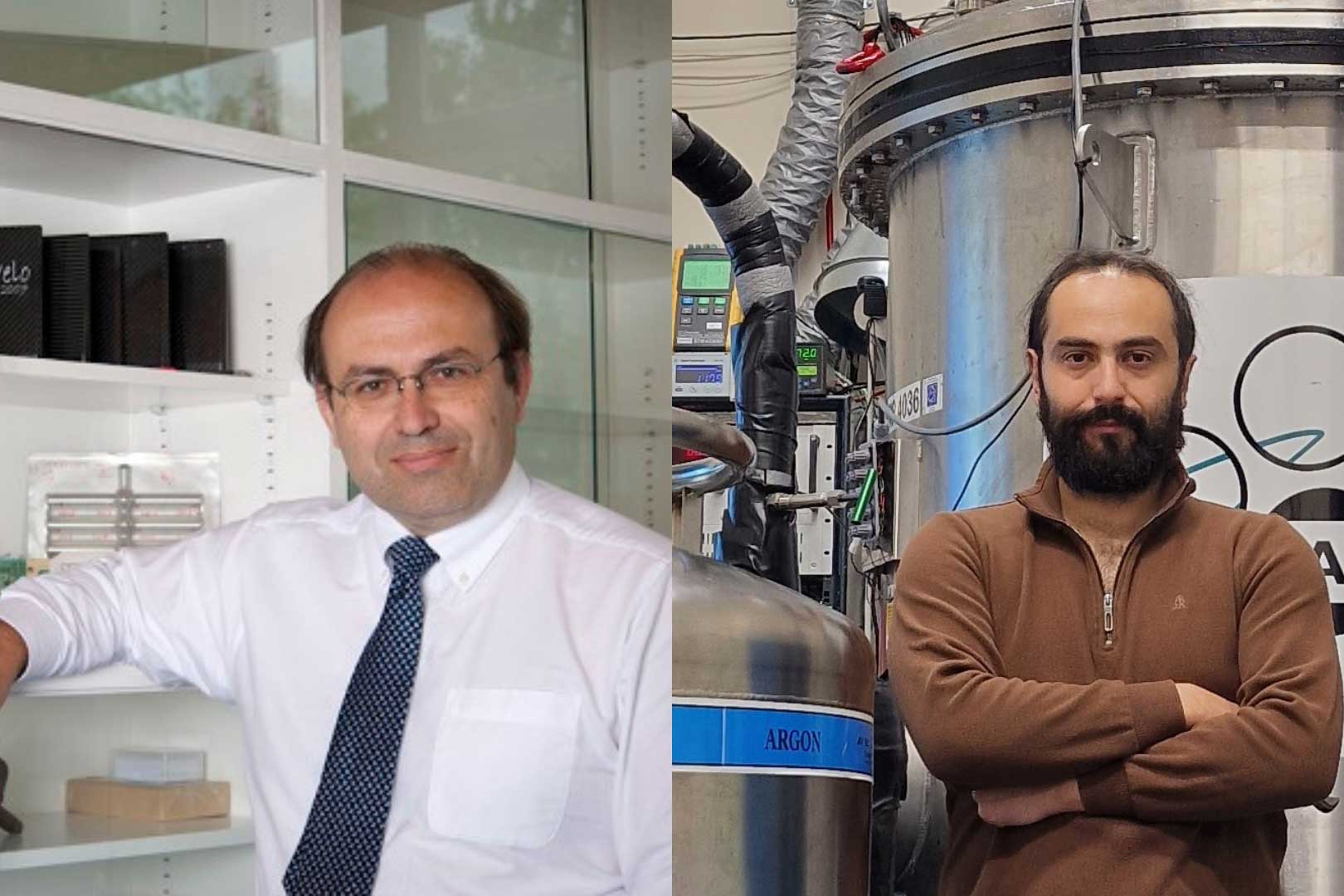Liverpool physicists recognised for outstanding contributions in their field

Two members of the University of Liverpool Department of Physics have been awarded distinguished prizes for their outstanding contributions to the field of particle physics.
Professor Themis Bowcock from the University’s Department of Physics has been awarded the 2023 James Chadwick Medal and Prize, an award granted by the Institute of Physics (IoP) in recognition of his services to particle physics.
Professor Bowcock receives the award for his outstanding contribution to the design, construction and operation of major detector and computing systems that have underpinned quark and lepton-flavour measurements worldwide.
Professor Bowcock said: "I am absolutely delighted as this is really a recognition of all our staff in Particle Physics. As you know, we always work as a collaboration. So, in my view, this is for our support staff, the world class researchers, our electrical and mechanical engineers, the Semiconductor Detector Centre and, of course, our superb particle physics detector facility. It has been a lifetime’s privilege to work with this team and, I should add, our great collaborators both in the UK and internationally. I’d love to have a chance to do this all over again!”
An experimental particle physicist who led the University’s Particle Physics group from 2011-2019, Professor Bowcock has been at the forefront of particle physics research for several decades.
The Institute of Physics (IOP) is the professional body and learned society for physics, and the leading body for practising physicists, in the UK and Ireland. Its annual awards proudly reflect the wide variety of people, places, organisations and achievements that make physics such an exciting discipline.
Dr Kostas Mavrokoridis has been awarded the International Committee for Future Accelerators (ICFA) instrumentation early career award. The award was presented to Kostas at the 2023 Technology and Instrumentation in Particle Physics (TIPP) conference, held in Cape town, South Africa.
The award recognizes achievements in instrumentation made at an early career stage by an individual, or group of individuals, that has the promise to make, or has already made, an advance in the field of particle physics. Kostas was awarded the prize for his work on the liquid argon detectors that he has developed in Liverpool, and specifically the development of an innovative 3D optical readout for liquid argon time projection chambers that use novel glass thick GEMS (THGEMs) coupled to very fast Timepix cameras to provide high-granularity images and low-energy thresholds.
The technology developed within the ARIADNE programme provides particle identification, high energy resolution, low noise at room temperatures and sensitivity to lower energy liquid argon interactions. Additionally, the new readout approach addresses challenges of scale-up to kton scale detectors. With successful large-scale demonstrations already carried out during two expeditions to CERN, the technology is now under consideration for a future 10-kton neutrino far detector within the DUNE programme. LAr detectors are pivotal for Neutrino physics studies which will enable discovery of physics beyond the Standard Model; these detectors will hold the key to our understanding of phenomena such as dark matter and the matter antimatter asymmetry of our Universe. The elegant and sophisticated ARIADNE optical readout technologies have the potential to extend the scientific reach and discovery potential of the planned DUNE far detectors.